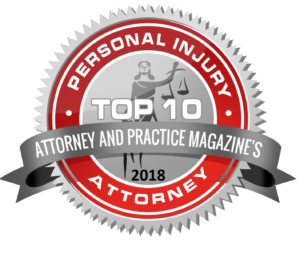Facing domestic violence charges can be an overwhelming and life-altering experience. The emotional, financial, and legal consequences that follow these accusations can leave an individual feeling uncertain about their future. In Virginia, domestic violence is taken seriously by law enforcement and the courts, often leading to significant legal ramifications, even for first-time offenders. Whether you are facing charges stemming from a misunderstanding or a more complex situation, it is crucial to understand how the law operates and how to best approach these charges.

In Virginia, domestic violence is typically charged as assault and battery against a family or household member. This offense includes acts of physical violence or threats of violence against a spouse, former spouse, children, cohabitants, or others with whom you have a close relationship. Virginia law also recognizes emotional abuse, stalking, and other non-physical actions as forms of domestic violence. The state has established strict laws regarding domestic violence in an effort to protect victims and prevent future occurrences.
When charged with domestic violence, it is important to approach the situation carefully and strategically. In the following sections, we will explore the legal landscape of domestic violence charges in Virginia, what steps to take if you are accused, and what to expect from the legal process. Properly handling these charges can make a significant difference in the outcome of your case.
Understanding Domestic Violence Laws in Virginia
Domestic violence in Virginia falls under the category of family or household abuse, as outlined in the Code of Virginia § 16.1-228. This includes physical harm, force, or threats that cause a family or household member to fear for their safety. The individuals considered family or household members include current or former spouses, parents, children, siblings, cohabitants, or individuals who share a child together. Importantly, the law does not require that the victim suffers visible injuries. A credible threat of harm can also constitute grounds for charges.
Domestic violence is often charged as assault and battery against a family or household member under Virginia Code § 18.2-57.2. A first-time offense is classified as a Class 1 misdemeanor, punishable by up to 12 months in jail and a fine of up to $2,500. If the accused has prior domestic violence convictions within the past 20 years, subsequent charges may be classified as a Class 6 felony, which carries more severe penalties, including up to five years in prison.
It is also important to note that in Virginia, police officers are required to make an arrest if they have probable cause to believe that domestic violence has occurred. This often leads to situations where both parties involved in an argument or physical altercation may be arrested. Once charges are filed, the victim does not have the ability to drop the charges; it is up to the prosecutor to decide how to proceed with the case.
Immediate Steps to Take if You Are Accused of Domestic Violence
If you are accused of domestic violence in Virginia, the actions you take immediately after the accusation can significantly impact your case. First, it is essential to comply with law enforcement. Resisting arrest or attempting to argue with the police can lead to additional charges and complicate your defense. While it may feel unfair or frustrating, remaining calm and cooperative is in your best interest.
Once arrested, you will likely be served with a protective order. This order may prevent you from contacting the alleged victim, entering certain locations, or even returning to your own home. Violating the terms of a protective order can result in further criminal charges. It is important to follow all court orders and seek legal advice on how to handle the restrictions imposed by the protective order.
The next step is to seek legal representation as soon as possible. Domestic violence charges can be complex, and defending yourself without legal guidance is not advisable. An attorney can help you understand the charges you are facing, explain your legal rights, and develop a defense strategy based on the specific circumstances of your case.
Additionally, it is important to gather any evidence that may support your defense. This can include text messages, emails, or witnesses who can corroborate your version of events. Your attorney will be able to advise you on what types of evidence will be most useful in your defense.
Possible Defenses Against Domestic Violence Charges
Several defenses may be available to individuals facing domestic violence charges in Virginia, depending on the circumstances of the case. One of the most common defenses is self-defense. If you were acting to protect yourself or another person from harm, your actions may be legally justified. However, it is important to note that the amount of force used in self-defense must be proportionate to the threat you faced.
Another potential defense is that the allegations are false or exaggerated. In some cases, domestic violence accusations arise from misunderstandings, miscommunications, or attempts by one party to gain an advantage in a divorce or child custody case. Your attorney can help you gather evidence to show that the claims against you are unfounded.
It may also be possible to challenge the evidence presented by the prosecution. For example, if law enforcement conducted an unlawful search or seizure, your attorney may be able to have certain evidence excluded from the case. Additionally, inconsistencies in the alleged victim’s statements or lack of credible evidence can weaken the prosecution’s case.
In cases where the accused has prior convictions, it may still be possible to negotiate a plea agreement or alternative sentencing options. Depending on the facts of your case, you may be eligible for counseling or anger management programs as an alternative to jail time. Your attorney will be able to advise you on the best course of action based on your individual situation.
Choosing a Criminal Defense Attorney Bailing Someone Out of JailRelated Videos
What to Expect from the Legal Process
The legal process for domestic violence charges in Virginia begins with an arrest, followed by an arraignment where the accused will enter a plea of guilty or not guilty. If you plead not guilty, your case will proceed to trial, where both the prosecution and defense will present evidence and argue their respective cases. Throughout this process, your attorney will be your advocate, working to ensure that your rights are protected and that you receive a fair trial.
It is important to understand that domestic violence cases can move quickly through the court system, particularly if a protective order is in place. Therefore, it is essential to work closely with your attorney to prepare your defense in a timely manner.
If you are convicted of domestic violence, the penalties can be severe, including jail time, fines, and a permanent criminal record. A conviction can also have collateral consequences, such as the loss of child custody, difficulty finding employment, and damage to your personal reputation. For these reasons, it is critical to take the charges seriously and to engage in a strong defense.
If you are acquitted or the charges are dismissed, you may be able to have the arrest and charges expunged from your record, allowing you to move forward without the stigma of a domestic violence charge. Your attorney can guide you through the process of expungement if you are eligible.
The Importance of Legal Representation
One of the most important decisions you can make when facing domestic violence charges is to hire an experienced attorney. The legal system can be difficult to navigate, and the consequences of a conviction can be life-altering. An attorney will provide you with the legal knowledge and representation needed to defend against the charges and seek the best possible outcome.
An attorney will also help you understand your rights, including your right to remain silent, your right to a fair trial, and your right to challenge the evidence against you. In many cases, the prosecution will rely heavily on the testimony of the alleged victim, and having an attorney to cross-examine witnesses and present your side of the story is critical.
In some cases, your attorney may be able to negotiate a plea agreement with the prosecution, reducing the charges or penalties you face. Alternatively, your attorney may advise you to take your case to trial if there is a strong defense to be made. Regardless of the path you choose, having a knowledgeable advocate on your side will give you the best chance of achieving a favorable outcome.
Facing domestic violence charges in Virginia is a serious matter that requires careful handling and a strong defense strategy. From understanding the charges and gathering evidence to navigating the legal process and presenting defenses, each step of the process is critical to the outcome of your case. Working with a skilled attorney can make all the difference when it comes to protecting your rights and your future.
At NovaLegalGroup, P.C., we understand the challenges you face when accused of domestic violence, and we are committed to providing the legal support and representation you need during this difficult time. Our team is here to help you navigate the legal system, protect your rights, and seek the best possible resolution to your case. If you or a loved one is facing domestic violence charges in Virginia, contact us today to discuss your legal options and begin building your defense.










